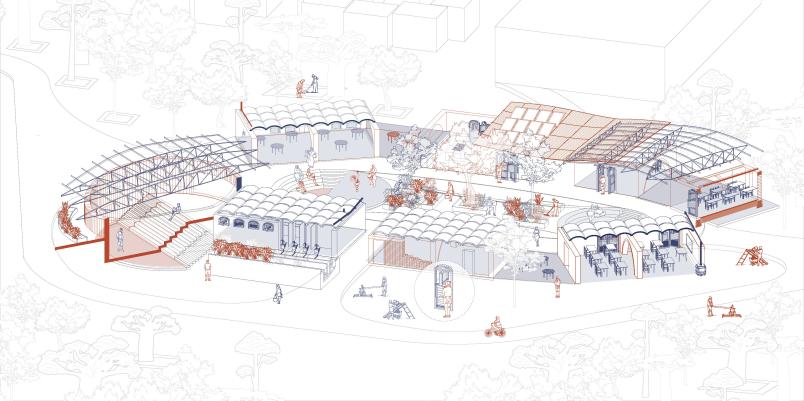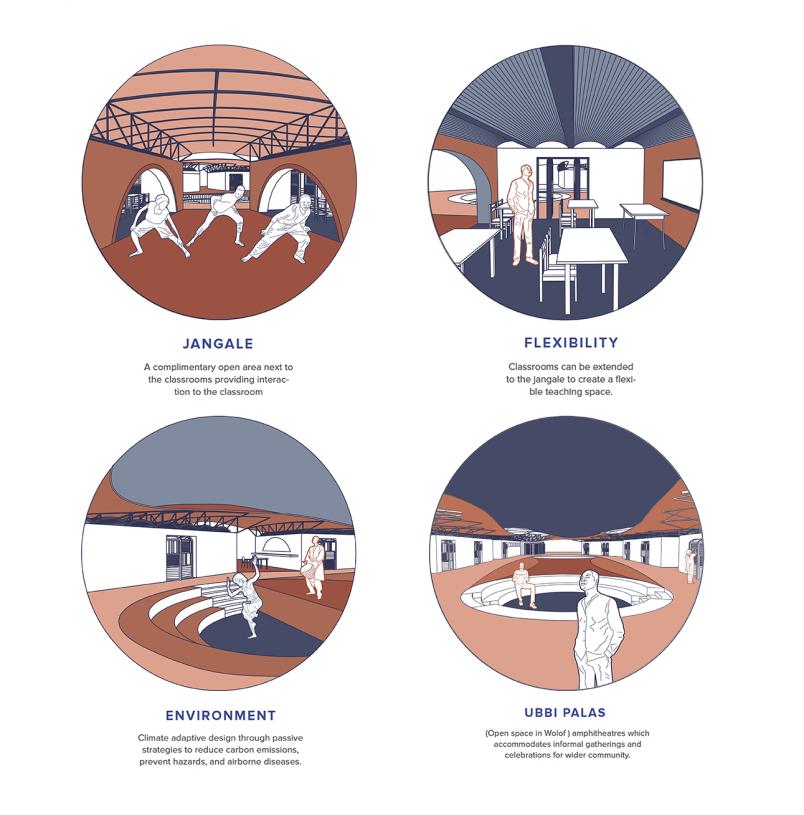
An innovative project to manage health emergencies in Africa

The project “Design for Healthcare SURGE. A Toolkit for the African Region”, born from the collaboration between the Politecnico di Torino and the Téchne (Technical Science for Health Network) international network of the World Health Organisation (WHO), won the UIA International Innovative Health Design Awards in the "Theoretical Work" category, which will be conferred in July during the UIA World Congress of Architects in Copenhagen.
The proposal was supervised by a team of architects, engineers, lecturers and master students from the Green Building Design Studio A of the Politecnico di Torino - Francesca De Filippi, Roberto Pennacchio, Matteo Robiglio, Elena Guidetti, Valeria Villamil Cárdenas, Laura Juliana Gualdrón Frias from the Department of Architecture and Design-DAD, Marco Simonetti and Stefano Fantucci from the Department of Energy-DENERG - with Michele Di Marco and Anna Silenzi from the Téchne Operational Support Team (OST), based at the WHO in Geneva, Switzerland. Téchne is an international network of universities and non-profit technical institutions that, through the WHO’s coordination, helps Member States to respond to and prepare for public health emergencies.
The objective is to formulate a methodology to support the design processes of Centres of Excellence conceived by the WHO in the framework of Flagship Projects, in health emergency situations. The Flagship Projects aim to improve the capacity of Member States to prepare for and respond to health emergencies. To support this initiative, the WHO Regional Office for Africa has proposed the development of regional Centres of Excellence to train professionals needed to respond to health emergencies.

The methodology proposed by the research team is based on a careful analysis and understanding of the context (physical, climatic, economic-social) in which it operates, and is based on four pillars that act in synergy to achieve effective results: Environmental sustainability, through adaptive design and passive bio-climatic strategies to promote user well-being in built spaces, and to reduce energy demand from facilities; Cultural appropriateness, paying attention, in the design, to the inclusion of spaces that can accommodate functions and activities traditionally performed by the community; Construction processes that are based as much as possible on the use of local materials and appropriate technologies, allowing them to be easily set up and possibly replicated, and entailing little, if any, maintenance; Mitigation of infectious risk, through the design of adequately organised, sized and ventilated environments to reduce the risk of contagion and transmission of infectious diseases.
The project will officially receive the award in July during the UIA World Congress of Architects in Copenhagen. The world-class congress will be dedicated to the theme of a sustainable future ("Sustainable Future. Leave no one behind" is the title) with the aim of making architecture an essential tool to achieve the 17 United Nations Goals (SDGs). Founded in 1948, International Union of Architects (UIA) is recognised by most United Nations agencies as the only architecture organisation at a worldwide level.
“Receiving this important award – comments Francesca De Filippi – is a matter of pride and a confirmation for us of the great potential represented by the collaboration between WHO – Téchne and the Politecnico di Torino. The projects in which we are involved, within the framework of the FULL interdepartmental centre, cover a broad spectrum of actions, oriented towards the definition of strategies and design solutions, marked by environmental sustainability, capable of mitigating the risks of spreading infectious diseases in treatment and care facilities. As a research group, we hope that this specific contribution will benefit the countries that will be building Centres of Excellence in the near future”.